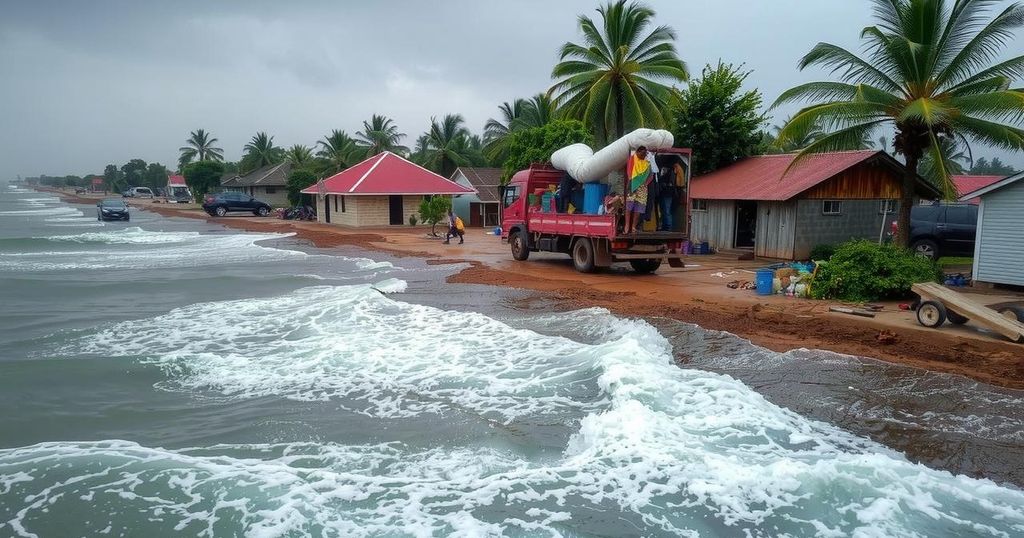Tropical Cyclone Chido impacted Mozambique on December 15, 2024, affecting over 380,000 people. Reports indicate the destruction of homes, schools, and health units, along with the death toll rising to 76. WFP mobilized swiftly, providing immediate food assistance to thousands of affected individuals. Access challenges persist in damaged areas, necessitating ongoing humanitarian efforts.
Tropical Cyclone Chido made landfall in the Cabo Delgado province of Mozambique on December 15, 2024, resulting in significant devastations. As of the latest reports, over 380,000 individuals in the areas of Cabo Delgado, Nampula, and Niassa have been affected. The cyclone has led to the destruction of 61,500 homes, damaged 52 health facilities, and impacted 250 schools along with 1,126 classrooms. The Ministry of Health has reported 76 fatalities and 768 injuries. These numbers are expected to rise as assessments continue.
In response to the disaster, the World Food Programme (WFP) mobilized quickly, providing emergency food assistance to 500 families in Pemba within 24 hours of the cyclone’s impact. Humanitarian food distributions commenced in Mecufi on December 17 through the collaborative Joint Response Programme (JRP) alongside the International Organization for Migration (IOM) and UNICEF. Distributions under the JRP concluded on December 20, with WFP pledging to continue support dependent on immediate requirements and available resources.
Thus far, approximately 23,000 individuals have benefitted from assistance in Pemba, Mecufi, Metuge, and Chiure through the JRP collaboration. An additional distribution of food was executed in Mogincual, Nampula, where aid was provided to 70 individuals in temporary shelters established due to the crisis. Following a temporary suspension of services, UNHAS flights were reinstated on December 18, ensuring vital logistical connections for humanitarian efforts.
The cyclone, categorized as a Category 4 with wind speeds reaching 180 km/h and gusts of up to 220 km/h, has severely impacted the infrastructure. Areas afflicted include Mecufi, Chiure, Metuge, Pemba, and Namuno, among others. Access to many of these regions remains challenging due to blocked roads and extensive damage reported. Although Pemba airport closed temporarily, it reopened on December 16, facilitating the transport of humanitarian supplies in the aftermath of the cyclone. The local WFP office in Pemba has endured moderate damage but remains operational, with major roads accessible for traffic.
Tropical Cyclone Chido represents a severe environmental disaster affecting Mozambique, notably the provinces of Cabo Delgado, Nampula, and Niassa. Cyclones in this region not only disrupt everyday life but also challenge existing humanitarian assistance efforts. The scale of the damage wrought by Cyclone Chido necessitates a coordinated international response to provide food, shelter, and medical assistance to those significantly impacted. Organizations like WFP, IOM, and UNICEF are critical in implementing effective and timely assistance during humanitarian crises such as this one.
In conclusion, Tropical Cyclone Chido has adversely impacted a substantial number of lives and infrastructure in Mozambique, with ongoing assessments revealing escalating needs. The swift response from WFP and collaborative partners has provided essential assistance to thousands. However, the continuing challenges with access and the extensive damages require sustained humanitarian efforts and support from international agencies to aid recovery and resilience in the affected communities.
Original Source: reliefweb.int






